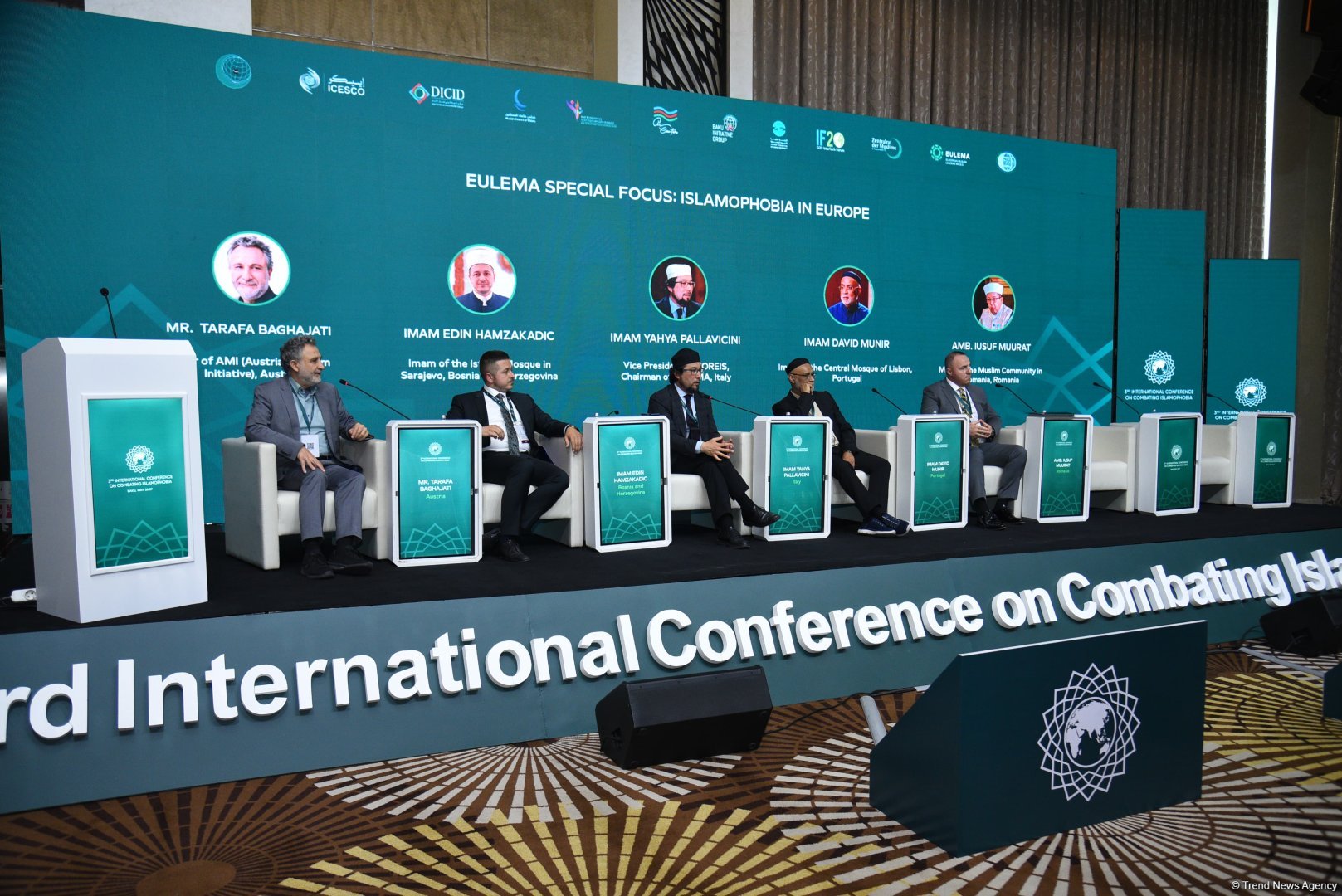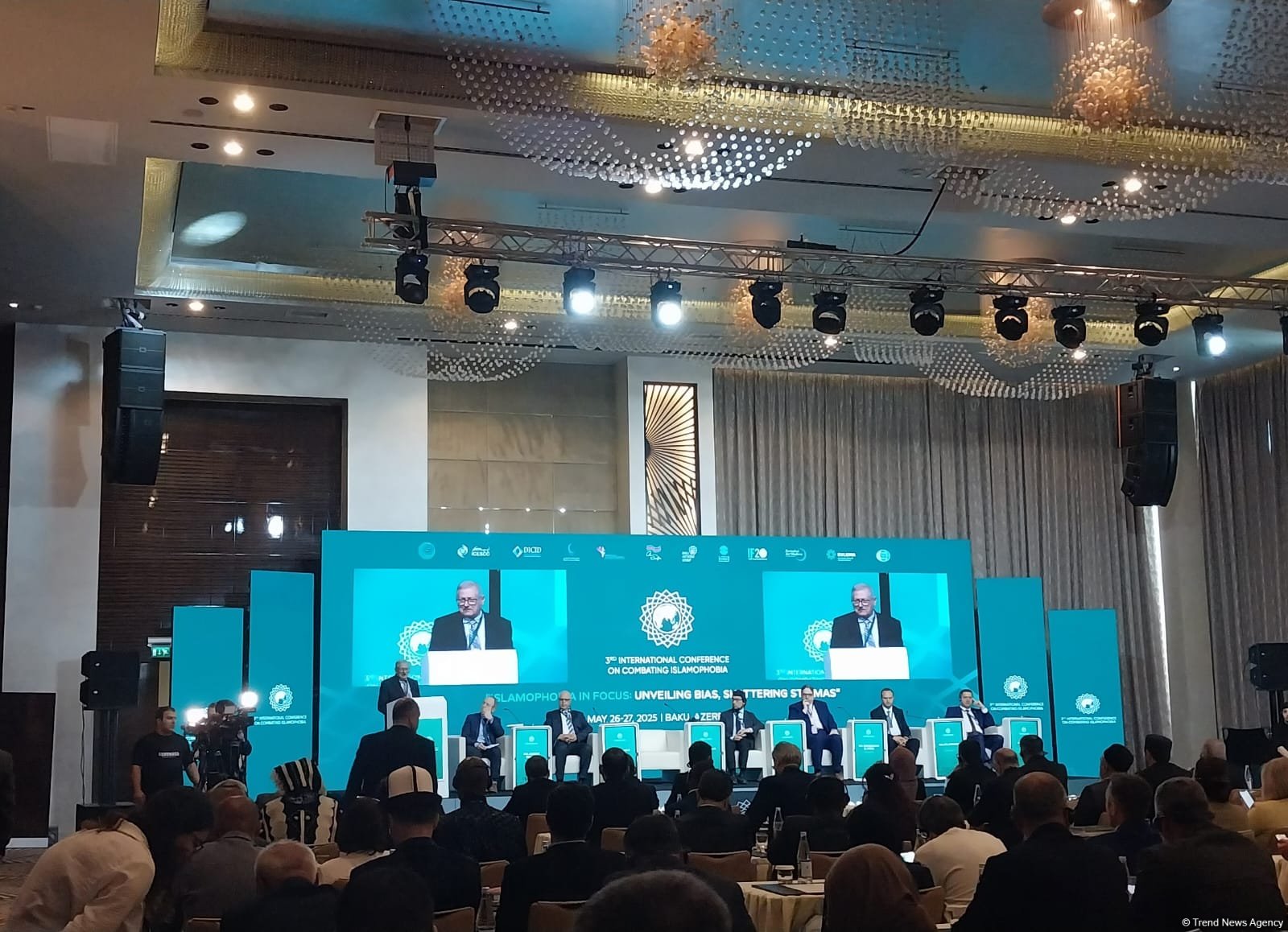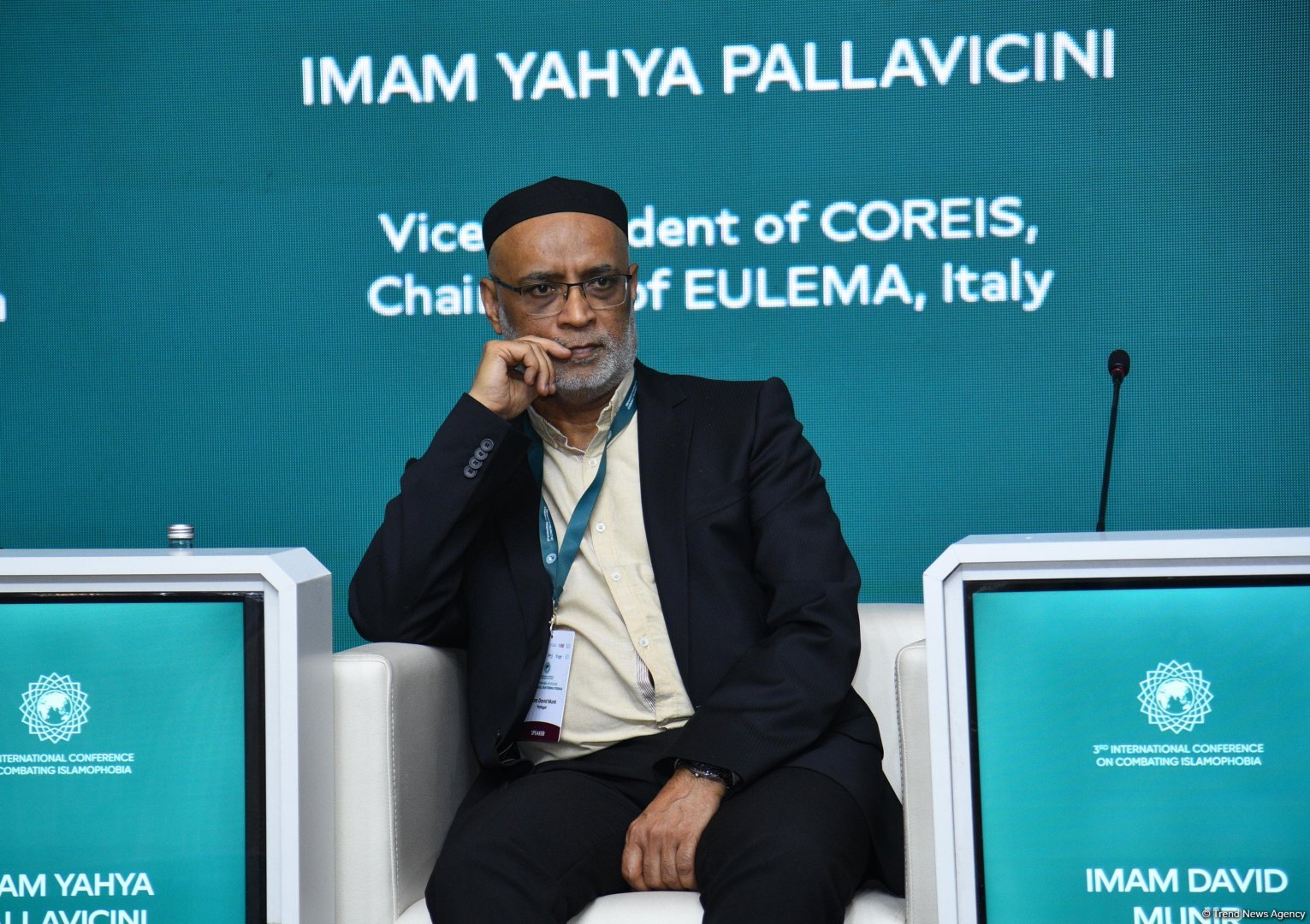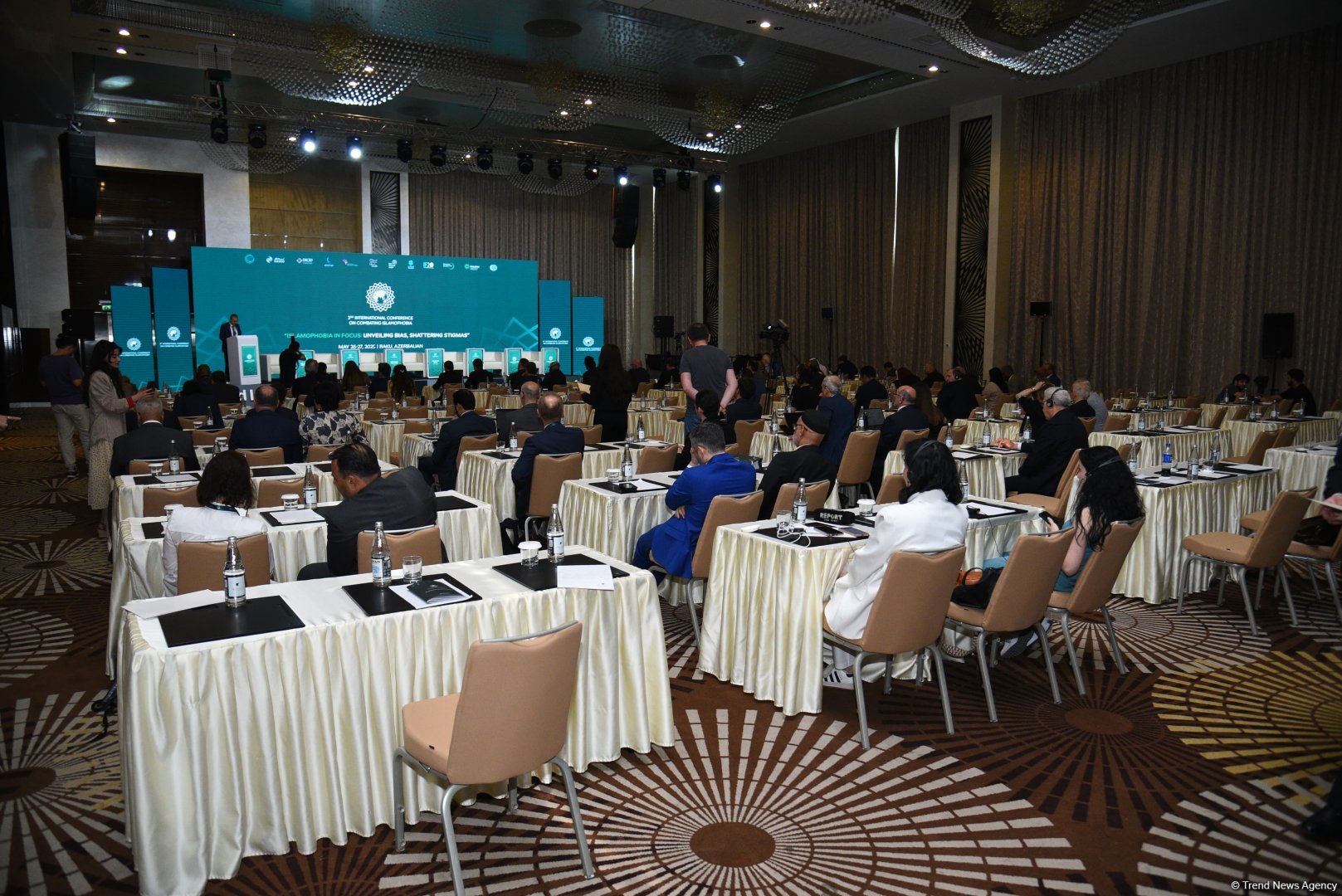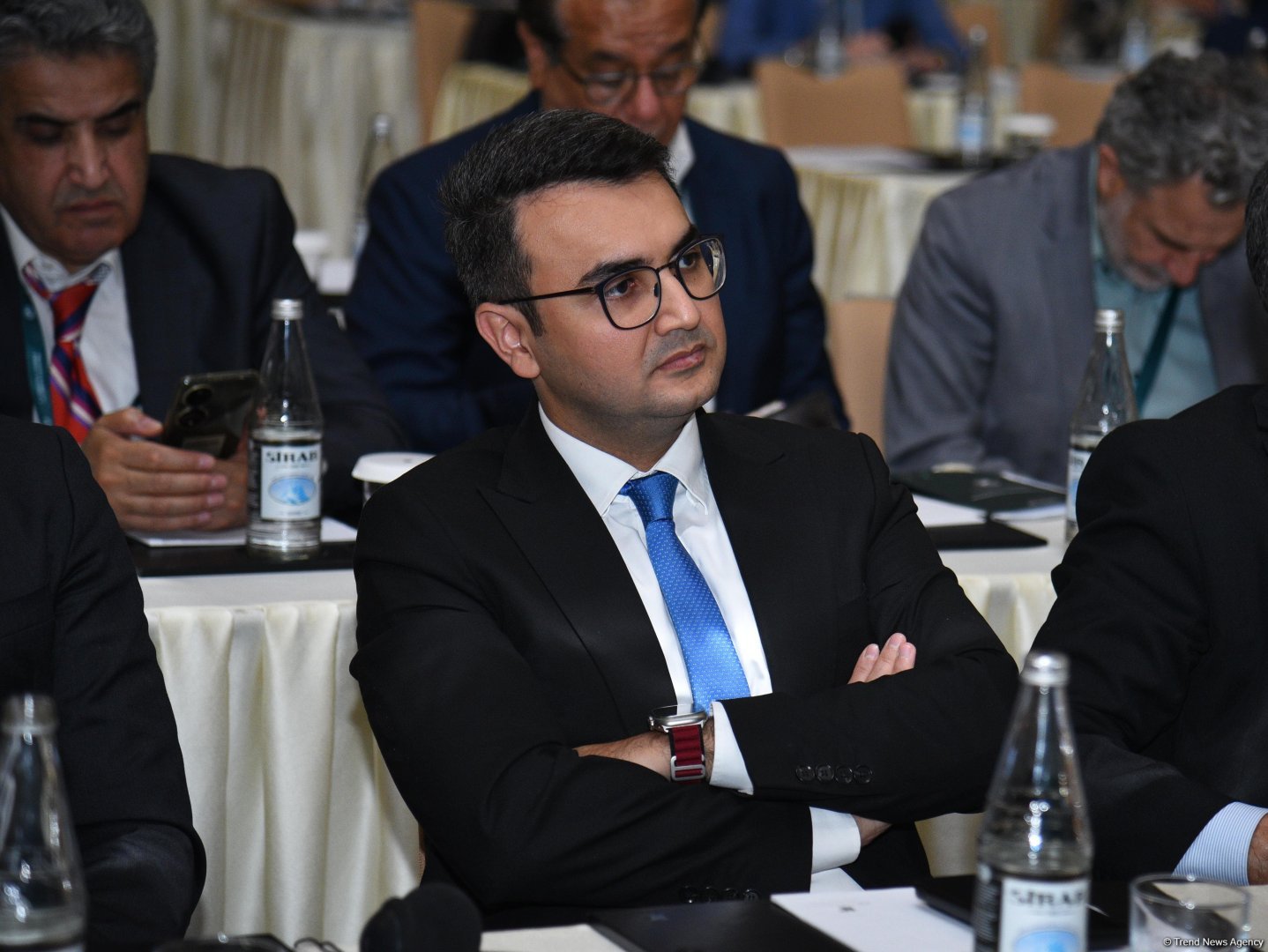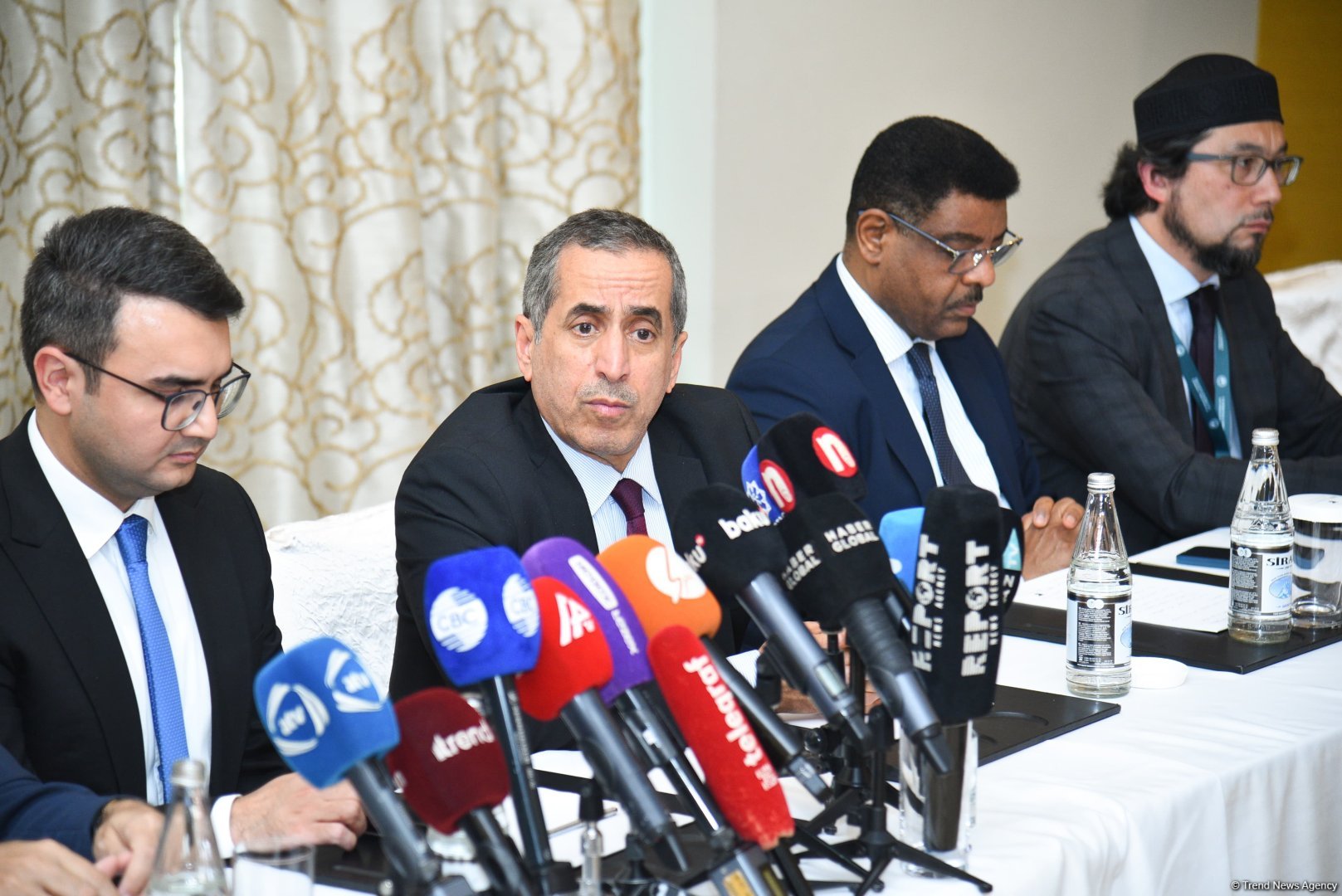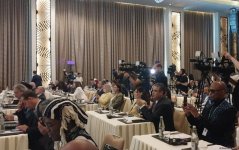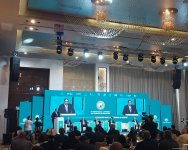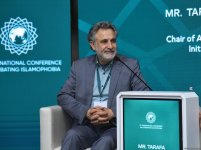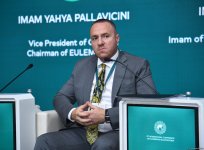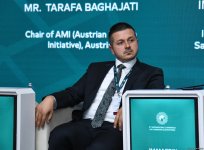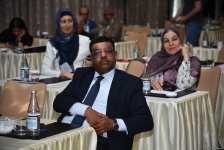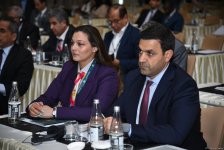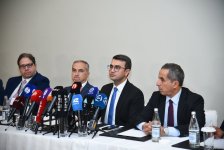BAKU, Azerbaijan, May 27. The concluding day of the two-day international conference titled "Islamophobia in Focus: Unveiling Bias, Shattering Stigmas" has concluded in Azerbaijan's Baku, Trend reports.
The conference is jointly organized by the Baku International Center for Multiculturalism, the Center of Analysis of International Relations (AIR Center), and the Baku Initiative Group. The event is dedicated to the 3rd anniversary of the International Day to Combat Islamophobia.
Among the international partners of the event are the G20 Interfaith Forum (IF20), the Organization of Islamic Cooperation (OIC), the Islamic World Educational, Scientific and Cultural Organization (ICESCO), the Doha International Center for Interfaith Dialogue (DICID), the Higher Committee of Human Fraternity, the Muslim Council of Elders, the Central Council of Muslims of Germany, the European Council of Muslim Leaders (EULEMA), and the International Muslim Forum.
Today’s sessions include panel discussions on several pressing themes: "The Institutionalization of anti-Muslim Legislation in Europe. Anti-Muslim Rhetoric Amid Radicalization Propagated Islamophobic Sentiments", "Safeguarding Islamic Cultural Heritage in a Changing World", and "Youth Voices for Inclusion: Tackling Prejudice and Misconceptions".
In his speech, the president of the Grand Mosque of Strasbourg in France, Saïd Aalla, stated that islamophobia in France has reached alarming proportions.
“Islamophobia is not a phenomenon unique to France. On the contrary, it affects almost all Western countries. In recent years, however, the phenomenon has taken on a particularly alarming scale and form in France. Until recently, open hostility toward Islam and Muslims was mainly limited to extreme right-wing political parties,” he noted.
According to him, a dramatic transformation has recently taken place: the rhetoric of Islamophobia has spread to areas previously untouched by such hatred.
“Islamophobia now manifests itself in the statements of politicians - both men and women - who position themselves as democrats, as well as in the mainstream media, which, under the guise of freedom of expression, give extensive airtime and space to propaganda speeches. Increasingly, this rhetoric is supported by researchers, academics, businessmen, journalists, and, of course, ordinary citizens,” Saïd Aalla emphasized.
In turn, the vice president of the International Union of Muslim Scholars in Qatar, Abdul Majid Al Najjar, said that laws in several countries, under the guise of ensuring security and law and order, are aimed at restricting the rights of Muslims.
“We have seen an increase in conversions to Islam, especially in Europe. Certain circles, especially the media, are using their influence to change people's opinions about Islam to prevent this growth. They are misusing their tools to create a negative image of Islam and Muslims,” he said.
Najjar noted that modern laws in several countries, especially in Europe, under the guise of ensuring security and law and order, are aimed at limiting the rights of Muslims, formally presented as neutral, but contribute to the growth of Islamophobia, legalizing discrimination, and increasing public hatred against Muslims.
Vice President of the Italian Islamic Religious Community (COREIS) and Chairman of the European Muslim Leaders’ Majlis (EULEMA), Imam Yahyâ Pallavicini, emphasized that a narrow narrative has taken root in Europe, falsely portraying Western identity as based solely on Judeo-Christian roots.
Pallavicini warned that this limited identity framework contributes directly to Islamophobia.
“This identity is presented as the ‘correct’ one, while anything else — including Islam — is placed in opposition to it, which leads to discrimination,” he stated.
He emphasized that this misconception not only marginalizes Muslims but also ignores the shared origins of the Abrahamic religions — Judaism, Christianity, and Islam, which all stem from the East. “It is from there that they arrived in the West, where they were long persecuted,” he added.
According to Pallavicini, Islam is only partially acknowledged and not recognized as an equal and full component of the Abrahamic tradition, a perception that affects the civil status of Muslims in European societies.
Addressing the event, the Chair of the Council of the Muslim Center of Germany, Abdulsamad Al-Yazidi, noted that islamophobia is not a regional or isolated issue but a global challenge.
Al-Yazidi stressed that while appointing a United Nations (UN) envoy on Islamophobia is a significant move, it is far from enough to address the magnitude of the problem.
“This issue contradicts every humanistic principle. In Germany, for example, open hatred toward Muslims is sometimes expressed in parliament and even receives applause — no other religion is treated this way,” he said.
Al-Yazidi emphasized that the fight against hatred and discrimination is not solely the responsibility of Muslims.
“Radical trends in Europe are becoming increasingly dangerous, and the international community must act collectively to confront this threat,” he stated.
He further highlighted that Islamophobia is mistakenly seen as a problem affecting only Muslims, whereas in reality, it fuels division and violence that harm society as a whole.

